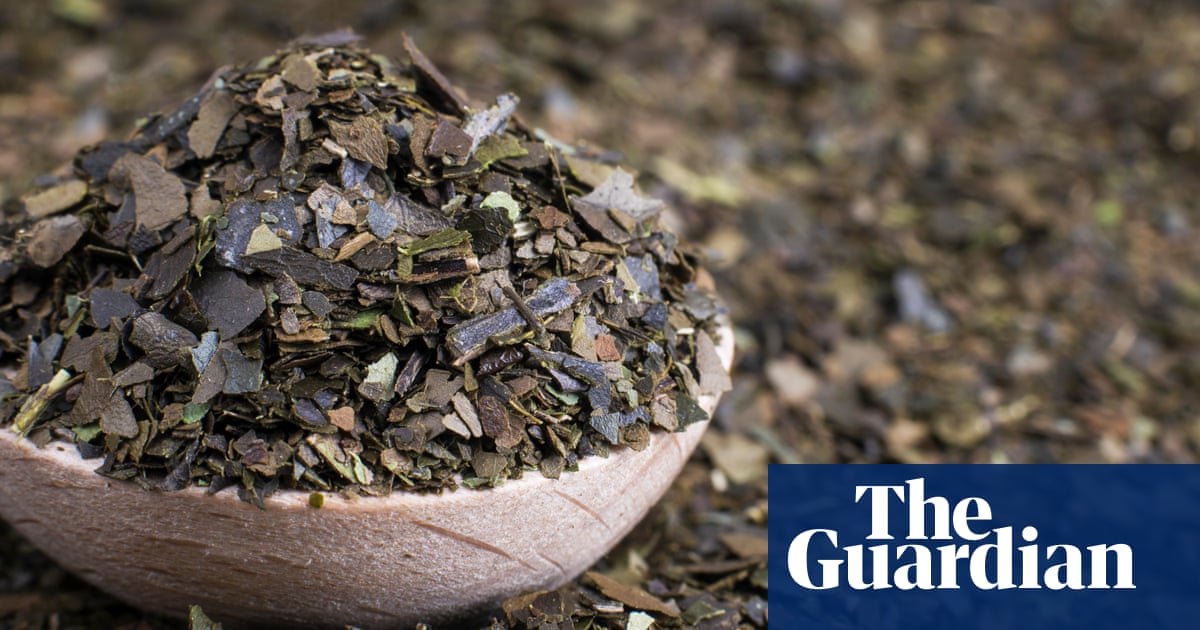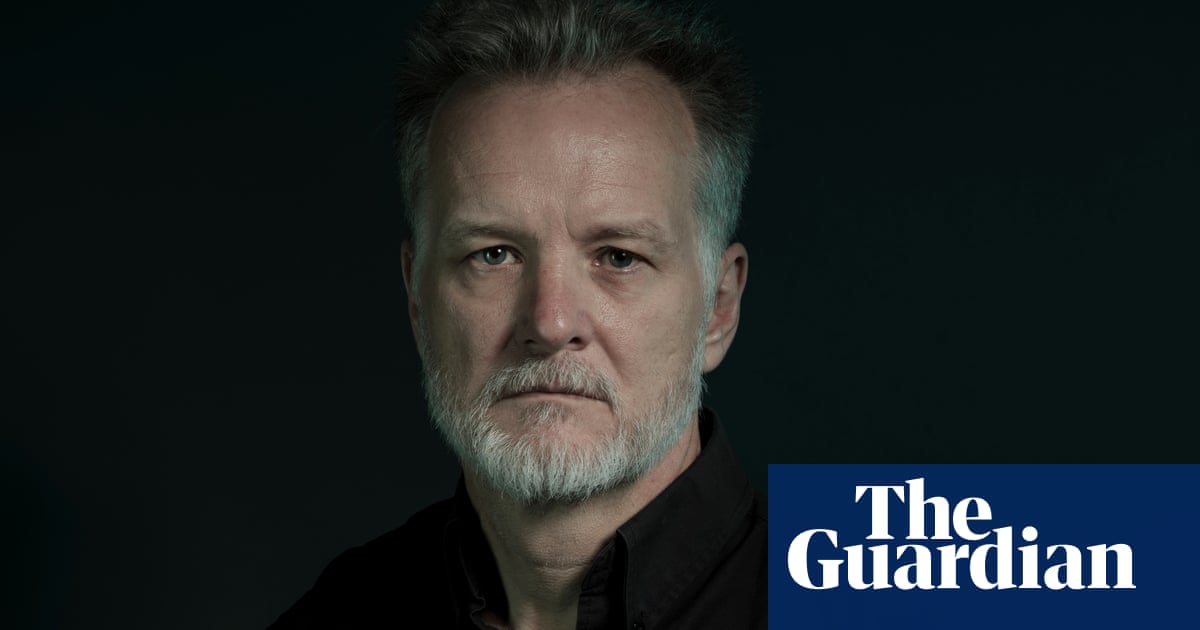Shamanic healing or opportunity for ritualized abuse? A lawsuit filed in New Mexico last week alleged that a âshamanic masterâ assaulted a woman during an âenergy medicineâ training session in March.
The claim, which is being investigated, could shed more light on what some say is a dark side of some trends in modern spirituality, especially those that involve the ceremonial use of often intense psychedelic treatments.
The woman in New Mexico, who was identified in the complaint only by the initials MG, says she paid thousands of dollars to the Four Winds Society and the Chi Center to become a certified energy medicine practitioner with âan extraordinary life of health, purpose and inner guidanceâ.
The lawsuit, first reported by the Santa Fe New Mexican, says that the woman had scheduled a session with an unidentified Peruvian âwisdom keeperâ and âshamanic master of energy trainingâ and informed him that she had been sexually abused as a child. The man indicated in Spanish he understood.
But after he directed her to lie down on one of the beds in his room at the Chi Center, the shaman used the healing session for âhis own personal interests or gratificationâ. The lawsuit alleges that at least two other women had similar experiences with the man.
A senior teacher at the center told MG that âwhat was done to her was not a standard part of the healing sessionâ when she raised her concerns, according to the suit. The Santa Fe county sheriffâs office has said the woman had not completed a sexual assault nurse examination because she âhad left the state and waited to report the incident via telephone from Californiaâ.
The shaman had by then left the US, flying from Houston to Panama, and the Santa Fe sheriff, Adan Mendoza, said a criminal case was âchallengingâ because the accused shaman was from overseas.
Still, the accusation follows in a long line of claims against spiritual gurus which indicate that some shamanic master practitioners may engage in sexual abuse, a troubling tendency previously associated primarily with more mainstream religious practices.
Last year, Jeffrey Glattstein, a shaman in Georgia, was accused of sexually assaulting staff and clients, including at least three women who said they had been assaulted âunder the guise that he would be healing and helping themâ. The defendant then filed claims against two former employees under the stateâs anti-defamation Slapp laws that later failed.
Sex scandals in spiritual or self-enlightenment communities are hardly novel, says Patrick Paul Garlinger, a former lawyer and the author of a 2022 essay titled The Spiritual World Has a Sex Abuse Problem.
âWe are seeing an increase, and part of that is the expanding number of people donning the mantle of spiritual teacher. But this also has a long history, in Zen and Tibetan Buddhism, in New Age circles, and there are obviously parallels with the sex abuse scandals in the Catholic church.â
The proliferation of spirituality, coupled with a willingness of victims to come forward in the #MeToo age, has created the conditions for an increasing number of claims coming to light. âThe power differential of a master-teacher, who is treated as enlightened or ascended in some way, is often used as the justification for why this isnât abuse,â Garlinger says.
Scandals within such organizations date at least to 1983, when Richard Baker, then the head of the San Francisco Zen Center, was fired for having affairs with several students. A decade later, Amrit Desai, the spiritual leader of the Kripalu yoga school, was similarly brought down. More recently Bikram Choudhury, the founder of a popular form of hot yoga, was sued for sexual assault in 2016 and fled the US to Mexico.
Sogyal Rinpoche, the author of The Tibetan Book of Living and Dying, was accused of abusing students in 2016; three years later, Sakyong Mipham, the leader of the Shambhala Buddhist meditation organization, was exposed and the Zen master Joshu Sasaki, accused of abusing students, was said to proselytize that the path to inner peace was to touch his penis because âtrue love is giving yourself to everythingâ.
The increased use of psychedelic drugs like ayahuasca, often amid claims of promoting spiritual growth or emotional healing, and an increase in shamanic tourism, could also be exacerbating the issue.
after newsletter promotion
Ayahuasca ceremonies, usually held at night, involving drinking a sticky brown liquid â a brew of two Amazonian plants â followed by vomiting before the drugs take effect, often involving powerful visions. In such circumstances, consent to any form of sexual contact is not grantable.
In one instance, a supposed taita, or shaman, Ãdgar Orlando Gaitán, was convicted in a Colombian court of raping women and three cases of sexual abuse of minors with disabilities, some during âtraditional Indigenousâ therapeutic practices.
Academic Daniela Peluso has warned of âincreased abuses of power, intercultural misunderstandings, the proliferation of inexperienced shamans, and vast power differentials that have fueled the unacceptable reality that ayahuasca ceremonies can become potential spaces where sexual abuse can occurâ.
The shadow side of the ayahuasca scene led to a code of conduct co-authored by Peluso that âaimed to assist individuals within the psychedelic community to understand the common scenarios that can lead to abuse during ayahuasca consumptionâ.
The authors warned that âmutual cross-cultural misunderstandings and misconceptions between healers and participants can create confusion at least, and can be brutally manipulated at worstâ under the guise of spiritual empowerment or through the use of âcharm spellsâ.
âAs ayahuascaâs popularity is increasing, alarmingly so are incidents of the sexual abuse of women,â they wrote, noting that âthe majority of such cases involve the abuse of female participants by male shamansâ.
This, the authors added, âis especially harmful and shocking considering many women who drink ayahuasca are seeking healing for sexual traumas suffered in the pastâ.
A separate study published by Psychedelic Invest warned: âMany of the people running these programs are not qualified to be working with people suffering from the after-effects of trauma. Others do have qualifications, but overstep important boundaries because they believe they are entitled to.â
But a code of conduct is a poor substitute for avenues for complaints and redress. Garlinger writes that the master-student relationship is problematic from the outset, especially when the approach to sexuality is unarticulated.
âThereâs a lot of shame and a sense of deep betrayal within a setting that is deeply meaningful,â he says. âThese abuses are difficult to investigate, and historically there has been an effort to silence victims, reframe their experience as part of their spiritual growth, and a need to protect the teacher and institution.â



